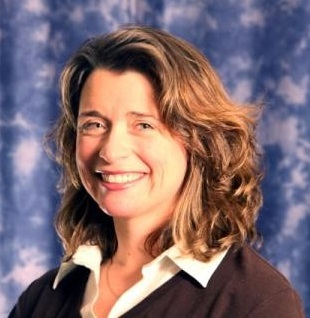Get to know and learn from your peers!
This new Research Spotlight column in the ECNG e-newsletter is intended to help you get to know the work of ACRM members from all career stages and disciplines, and to give you some insight about the different paths that people have taken along their career, and some words of wisdom of how to best succeed as you navigate this path. We want to include you in one of our upcoming newsletters, so don’t be shy – contact Alison Cogan about this opportunity now!
 ACRM MEMBER: Nancy D. Chiaravalloti, PhD
ACRM MEMBER: Nancy D. Chiaravalloti, PhD
Q: What’s your current research focus or area you are most excited about?
A: The focus of my work is on understanding and treating cognitive deficits following neurological illness and injury. I am particularly interested in learning and memory, although I do extend my work beyond that domain when appropriate. I enjoy developing and testing new behavioral interventions for memory dysfunction (i.e. memory rehabilitation) and understanding the factors that distinguish persons that benefit from treatment versus those that do not. This is particularly relevant when trying to identify patients that are appropriate for a given treatment prospectively. I also often seek to understand the neurofunctional changes associated with effective treatment and I believe that understanding these changes at the level of the brain will ultimately help in the determination of effective treatments and the identification of patients more likely to benefit from any given treatment.
Q: What prompted/motivated you to choose that area?
A: I have been interested in learning and memory since graduate school. My initial learning and memory work was my dissertation study, conducted in persons with Epilepsy. I pursued a fellowship that would advance my research skills and continued my learning and memory work in patients with Multiple Sclerosis. The potential of the treatment we developed and tested for MS led to the expansion of this work into persons with TBI. Given the tremendous need for empirically validated treatments for learning and memory dysfunction in MS and TBI, this area of my work grew to include other treatment paradigms in both groups of patients. In guiding my research, I constantly try to respond to the needs in the clinical care of people with neurological illness to fill gaps in the available literature and support clinicians in the work that they do.
Q: Briefly, what path did you take to get there? Or what is your career trajectory- long-term goal?
A: I received my PhD in Clinical Psychology with a specialization in Neuropsychology. I completed a post-doctoral fellowship at UMDNJ – Kessler Foundation in Rehabilitation Research and focused my work on imaging and cognitive rehabilitation. I began my work in MS, but transitioned to include persons with TBI in my work as well. I have seen my work exert an impact on both populations. I therefore continue my work in both TBI and MS and plan to continue this dual path in the future. The challenges of these 2 populations are quite different and the identification of their exact needs and the continued development and revision of a plan to address these needs is exciting and motivating. I plan to continue to develop and test interventions for memory dysfunction in these populations in an effort to provide clinicians with a “toolkit” of techniques that they may use with appropriate patients in an effort to best maximize the quality of life of each patient they see. I hope to test the best techniques with other neurological populations and adapt them as needed to maximize efficacy.
Q: Did you have any pivotal experience that propelled your research success?
A: The ability to win external grant funding is essential for full time researchers. Thus, every grant I receive represents a pivotal experience for me. This continues today. However, the most notable and memorable experience was likely when I won my first large grant, which was a NIH RO1 in 2003. This marked a mental commitment on my part to research as my career focus.
Q: Advice for young scientists. Words of wisdom
A: I always advise young scientists to be flexible. It is important to have a goal for your work and know what you would like to accomplish in your career. However, it is simultaneously important to recognize the opportunities that are presented to you and make the most of these opportunities when they arise. I would encourage young scientists to have an open mind and consider all opportunities and how each opportunity might advance your career or expand your impact. When I received my PhD, I planned on ultimately focusing my career clinically. My career path changed during my fellowship due to both grant success and the enjoyment I experienced from my research activities. I never planned on being a full time researcher, but I enjoy it immensely and I feel very lucky to have a protected research position. I am achieving my goal of helping people with cognitive deficits recover function and function better in their community, but the path by which I am doing that is quite different from expectations.








